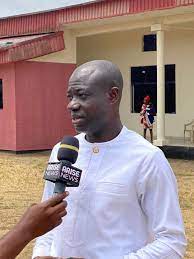The Bayelsa State Government has once again countered the Nigeria Centre for Disease Control (NCDC), insisting that there is no cholera outbreak in the state.
Bayelsa State Commissioner for Health, Professor Seiyefa Brisibe, made this clear during a press conference after touring health facilities in Yenagoa. He assured residents that there is no cause for alarm as the state’s disease surveillance system is active and prepared.
Brisibe, a professor of family medicine, emphasized that Bayelsa is ready to tackle any challenges posed by cholera, ensuring that no one dies in the event of an outbreak.
“Some of us are aware of the recent issues of cholera outbreak where we have some issues of data discrepancies between Bayelsa and the NCDC. We believe that these are things that will be corrected as we have been promised but we are also mid-streaming public health because we know that Bayelsa State is in the endemic belt of tropical diseases such as cholera, yellow fever and others,” Brisibe said.
“Therefore, we need to be proactive, going forward in a way that we do not get to the point of having data discrepancies at all. And outside that, we have to be proactive and see that Bayelsans are in the forefront of knowing what to do to prevent the adverse effect of an outbreak if at all there is any.”
Brisibe noted that up until Thursday, there had not been any positive cases of cholera in Bayelsa. “The classification or what defines someone as having cholera is that the stool will be subjected to a culture and it is when it is positive that we say we have an outbreak. But we don’t have that,” he explained.
With the recent cholera outbreak in Lagos, Brisibe emphasized that Bayelsa is taking all necessary precautions, including the use of rapid detection test instruments, to ensure the state’s health system is prepared.
“So, we are hopeful that with what we have done we will be in a position that we are not going to lose any life to the outbreak. And for me, that is the most critical and most important thing because we are in the tropics; these are disease entities that we cannot holistically eliminate at this point in time. It is for us to build resilient health systems where even when we have this risk, we don’t lose lives. The outcomes for those that are infected are perfectly alright.”








